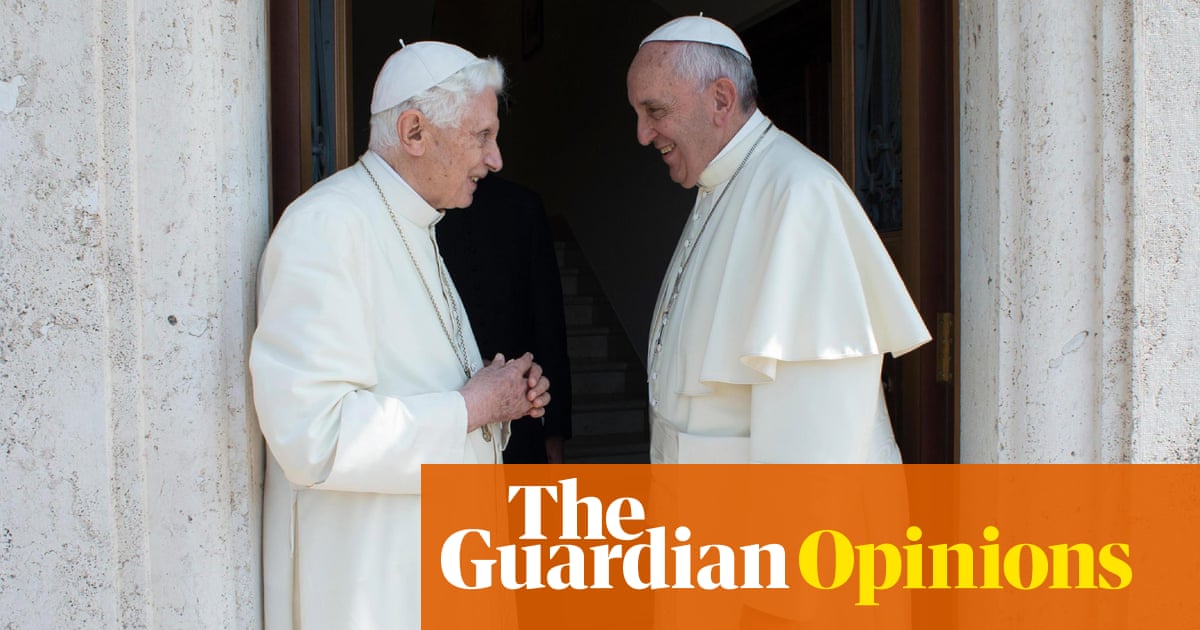
The powerful liturgy and rituals of the Church of England – the established church since the 16th century but increasingly marginalised in everyday life – were at the heart of a ceremony watched by billions around the world.
The Queen’s funeral took place under the magnificent gothic arches of Westminster Abbey, the setting for every coronation since 1066, home to the tombs of kings and queens, and the church where the then Princess Elizabeth was married in 1947.
The service was taken from the 1662 Book of Common Prayer, the C of E’s official prayerbook, noted for its beautiful and archaic language but largely displaced in recent decades by those seeking a more modern style of worship.
The Queen was said to be devoted to the Book of Common Prayer, along with the hymns and readings chosen personally by the monarch for her funeral.
The centrality of the Church of England and its leading figures in the funeral service reflected its unique status, with the monarch as its supreme governor and defender of the faith. But, acknowledging the multifaith, multicultural nature of modern society, representatives of other religions and Christian traditions were given a prominent place in the ceremonials.
In his sermon, Justin Welby, the archbishop of Canterbury, focused on eternal life after death, the central message of traditional Christian funerals.
He said: “The pattern for many leaders is to be exalted in life and forgotten after death. The pattern for all who serve God – famous or obscure, respected or ignored – is that death is the door to glory.”
The archbishop recalled the Queen’s promise on her 21st birthday to dedicate her life to service. “Rarely has such a promise been so well kept. Few leaders receive the outpouring of love we have seen.”
Speaking to the 2,000-strong congregation, which included royalty, world leaders and members of the British establishment, he said: “People of loving service are rare in any walk of life. Leaders of loving service are still rarer. But in all cases those who serve will be loved and remembered when those who cling to power and privileges are long forgotten.”
Her family were “grieving as every family at a funeral … but in this family’s case doing so in the brightest spotlight. May God heal their sorrow, may the gap in their lives be marked with memories of joy and life”.
Welby ended his sermon by echoing the Queen’s words in her Covid lockdown address to the nation. “We will meet again” were words of hope, he said.
“We will all face the merciful judgment of God: we can all share the Queen’s hope which in life and death inspired her servant leadership. Service in life, hope in death. All who follow the Queen’s example, and inspiration of trust and faith in God, can with her say: ‘We will meet again.’”
The procession that opened the service included faith representatives, led by Marie van der Zyl, the president of the Board of Deputies of British Jews. Muslim, Sikh, Hindu, Zoroastrian, Buddhist, Jain and the Bahá’í communities were also represented.
Church leaders from Scotland, Wales and Northern Ireland joined those from different Christian traditions in England, including the Roman Catholic church and black-majority Pentecostal churches.
The all-male choir of Westminster Abbey, one of the few Anglican cathedrals in England that has not admitted female choristers, sang psalms and anthems.
Sentences from scripture that were sung during the procession of the coffin included: “We brought nothing into this world, and it is certain we can carry nothing out. The Lord gave, and the Lord hath taken away; blessed be the name of the Lord.”
At a committal service in St George’s Chapel, Windsor, on Monday afternoon, David Conner, the dean of Windsor, said: “In the midst of our rapidly changing and frequently troubled world, [the Queen’s] calm and dignified presence has given us confidence to face the future, as she did, with courage and with hope.”
He read a passage from the book of Revelation that was also read at the funerals of the Queen’s father and grandfather.
The choir sang the Russian Kontakion, an ancient chant with its origins in the Russian Orthodox liturgy that expresses the sorrow of grief while reminding people of the Christian hope of everlasting life.
As the coffin was lowered, the dean spoke the words: “Go forth upon thy journey from this world, O Christian soul.”
A final, private burial service for close family members was due to be held in St George’s chapel in Windsor at 7.30pm.












